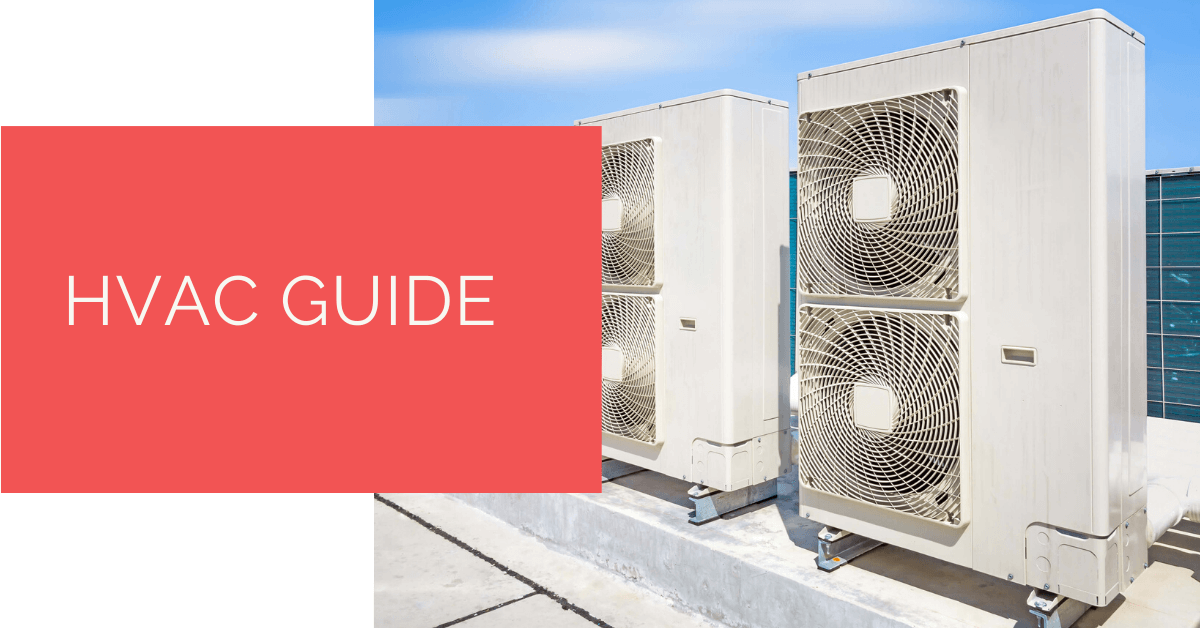There are a lot of things that people don’t know about HVAC, such as what’s it short for and what the main components of an HVAC system are. They also don’t know what the many benefits of an HVAC system are. In this HVAC guide, you’ll learn more about HVAC.
Contents
- 1 Key Takeaways
- 2 What Does HVAC Stand For?
- 3 What Is an HVAC System?
- 4 What Are the Components of an HVAC System?
- 5 How Does An HVAC System Work?
- 6 Types of HVAC Systems
- 7 What Are the the Benefits of an HVAC System?
- 8 Types Of Ventilation
- 9 The Main Components of an HVAC Unit
- 10 Heat Pump Source: Reliable Heating and Cooling Solutions
- 11 Conclusion
Key Takeaways
- HVAC stands for Heating, Ventilation, and Air Conditioning, and it encompasses various systems and equipment used to regulate indoor temperature and air quality.
- An HVAC system consists of three main components: Heating, Ventilation, and Air Conditioning, each playing a crucial role in maintaining comfort and air quality indoors.
- The benefits of HVAC systems include providing comfort in extreme weather, energy efficiency, improved air circulation, extended lifespan, increased property value, and the availability of modern features.
What Does HVAC Stand For?
HVAC is short for heating, ventilation and air conditioning. In general, it refers to an array of different systems, units, machines and tech that is used in businesses, homes and other types if indoor structures that require heating and or cooling in order to improve comfort.
What Is an HVAC System?
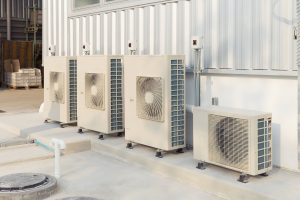 HVAC refers to providing indoor structures. That being said, an HVAC system is equipment that incorporates a ventilation system in order to provide cool and or hot air throughout a property. The system’s ventilation system exchanges air, or replaces air within the property. In turn, the quality of air indoors is improved.
HVAC refers to providing indoor structures. That being said, an HVAC system is equipment that incorporates a ventilation system in order to provide cool and or hot air throughout a property. The system’s ventilation system exchanges air, or replaces air within the property. In turn, the quality of air indoors is improved.
What Are the Components of an HVAC System?
There are three main components of a system. Bear in mind that there are many different systems, but they all will have three components. Those three components are:
Heating
Heating is one of the key components. When the air enters the HVAC system, it is filtered and heated before making its way back through the vents. How hot the air comes out depends on what the temperature is set at. Bear in mind that the temperature can be adjusted.
Ventilation
A ventilation system consists of various equipment, such as vents and duct-work. Air is typically pulled into the vents, filtered out and then released back into the areas of the property that the system is being used in. As previously mentioned, ventilation refers to recycling air or replacing it, that way there is a constant flow of clean air.
Air Conditioning
Air conditioning is just as equally an important component as heating. The process of making the air cold is similar to the heating process. The air undergoes a quick process, that way it comes out cold when it exits the vents. How cold the air will be also depends on what the temperature is set at.
How Does An HVAC System Work?
Various pieces of equipment needs to be installed in order for an HVAC system to work. The short explanation of how a system works is all of the equipment works together to take in air, filter it and then release it back out into the areas of the property that requires hot or cold air. This means that the areas of the property that the system will provide air to needs their own vents.
The vents are installed throughout the property, but they all are attached to the furnace. Other pieces of equipment that plays a role in making an HVAC system work includes gas lines, a condensing unit and a thermostat. A thermostat allows users to set a temperature, and once set the air will cool or heat up a room/rooms to that temperature.
Types of HVAC Systems
There are several types of systems. Although there are many brands and manufacturers of systems, they will tend to fall under one of four types. The four main types of HVAC systems include:
Heating And Cooling Split Systems
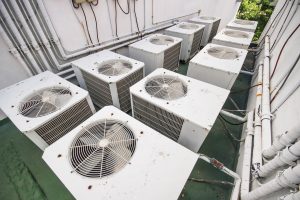 These are the most common systems. Split systems consists of two units, with one being for cooling and the other being for heating, hence the name. One unit is placed outside and the other unit is placed indoors.
These are the most common systems. Split systems consists of two units, with one being for cooling and the other being for heating, hence the name. One unit is placed outside and the other unit is placed indoors.
Split systems uses refrigerant, coils and compressors, as well as fans. All of those component work together to provide cool air. The heating unit indoors is connected to gas lines, and the air is disperse via a fan or a evaporator.
Hybrid Split System
This type of system is slightly different than a split system. The main difference between the two is that a hybrid split system can be powered via gas or electric, so you can switch between the two whenever you want. Hybrid split systems offer all of the benefits of a split system, but you can save money on utility bills because you choose when to run it on gas or electric.
Duct Free
As the name suggests, duct free systems do not require duct-work. Individual units are placed inside the areas of the property that you want to heat/cool off. The units are usually attached to a compressor, which is installed outdoors. Different rooms can be cooled or heated to different temperatures, which you can’t do with the two previously discussed systems.
Packaged Heating and Air
This is the most unique system of all, as the unit itself contains heating and air. The unit is usually installed on an upper floor of a property, and it is very small. This means there is no need to have an outdoor unit, as the entire unit is installed indoors. People often choose a packaged heating and air HVAC system over the other types due to how easy they are to install and to maintain.
Those are the four types of HVAC systems. Each one offers their own set of pros and cons. It’s best to research each type or get expert advice before deciding on which HVAC system to get.
What Are the the Benefits of an HVAC System?
All businesses and homes should have an HVAC systems. This is because of all the benefits associated with them. The top benefits of HVAC systems are:
Keep You Cool Or Warm
An HVAC system can keep you warm or cool. In the peak of summer or the midst of winter, you will remain comfortable when you have a quality HVAC system installed. It doesn’t matter what the weather is outside, you’ll have the ability to remain as cool or warm as you wish.
Also, HVAC systems can be installed in both residential and commercial properties. If you own a commercial property, then having an HVAC system is essential. This will play a major role in ensuring your workers and customers are comfortable when they enter the premise.
Save Money On Energy Bills
Another benefit that HVAC systems offer are energy-efficiency. The more energy efficient a system is, the more money you could save on your energy bills. Having an HVAC system is usually much cheaper than running an electric heater/air conditioner and it’s far moire convenient. With just a turn of a thermostat, you’ll be able to enjoy cool or warm air.
Not all systems are created equal. As long as you get a modern system, then you could end up saving a significant amount of money on your energy bills. Generally speaking, a professional can tell you whether or not you can upgrade to a more efficient system in order to save money.
Air Flow
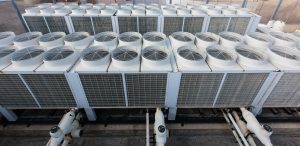 Air flow is another benefit that the systems provide. With an HVAC unit, a property can receive constant air flow. This is good for various purposes, with one being that it can keep mould at bay. With constant air circulating, moisture in various areas of a property won’t be as prone to mould than areas of the property that don’t have any air flow at all.
Air flow is another benefit that the systems provide. With an HVAC unit, a property can receive constant air flow. This is good for various purposes, with one being that it can keep mould at bay. With constant air circulating, moisture in various areas of a property won’t be as prone to mould than areas of the property that don’t have any air flow at all.
Lifespan
The best systems have a very long lifespan. In fact, there are systems out there that can last as long as 20 years or even a bit longer. Bear in mind that you’ll need to properly maintain your system if you want to have it last for a longtime. This means calling in a professional to service it from time to time.
Many types of cooling/heating units don’t have that long of a lifespan. For example, a window unit may only last for a couple of years before it breaks down. Over time this can add up, but with an HVAC system the large costs are typically paid in the initial stages.
Increase Value Of A Property
A lesser known benefit is that most HVAC systems can improve the value of a property. Whether it’s commercial property or residential property, it will increase in value when a modern HVAC system is installed. The truth is that when most people are on the market for a property, they will want a property that can easily be warmed up or cooled down, which is why an HVAC system is considered a must-have in the eyes of buyers.
Features
These days, there are HVAC systems with modern features. In fact, there are systems that are considered to be “smart” HVAC systems. Some of these features may include being able to control the temperature settings remotely or having the unit turn on just before you’re due to arrive. These are only a few examples of the types of features that the top systems have.
It’s recommended that you speak with an expert that services and installs HVAC systems. They can explain to you what features are found on the different types of systems. Then you can decide which type of HVAC system you should get and what features it should have.
Types Of Ventilation
In general, there are two types of ventilation. One of them is natural and the other is mechanical. Below is a more detailed explanation of the two:
Natural Ventilation
This is the most common type of ventilation. As the name suggests, this kind of ventilation is more natural because all you have to do is open doors and or windows to allow air to enter and escape the property. Natural ventilation has long been considered one of the best forms of ventilation.
Mechanical Ventilation
Mechanical ventilation forces air into a property, as well as throughout the property. However, a significant amount of installation is required, such as fans, vents, ducts and condensers to name a few. The initial capital required to install an HVAC system that requires mechanical ventilation can be a lot, but it tends to be worth it in the long run.
Different types of HVAC systems incorporate different types of ventilation. Regardless of the system you choose, it will likely incorporate one of the above, or both in the case of some hybrid systems. Both natural ventilation and mechanical ventilation comes with pros and cons.
The Main Components of an HVAC Unit
Generally speaking, there are eight main components that makeup an HVAC unit. Each component serves a great deal of importance. With that said, the eight components of an HVAC unit are:
Furnace
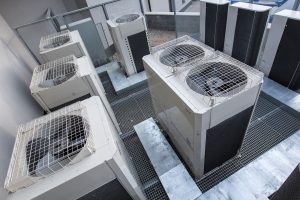 This is the biggest component that makes up an HVAC system. The main function of a furnace is to push hot and cold air through the heating ducts and vents. Furnaces come in an array of sizes and power output.
This is the biggest component that makes up an HVAC system. The main function of a furnace is to push hot and cold air through the heating ducts and vents. Furnaces come in an array of sizes and power output.
Heat Exchanger
As you can guess from the name, an exchanger is what converts air into warm/hot air. The exchanger sucks in the air, where it under goes a quick process. After the process is completed, the hot air is pushed through the vents to warm up various areas of the property.
Evaporator Coil
The coil does the opposite to what a heat exchanger does. It sucks in hot air and converts it to cold air. The coil is used when you choose to cool your property.
Condensing Unit
This component takes in refrigerant gas and turns it into liquid. Once the gas has been liquefied, it is sent to the coil before being converted back into gas. This offers extra cold air during the cooling process.
Refrigerant Lines
These lines are connected to the condenser. These lines are where the gas travels through. When gas is transported to and from the condenser and coil, it will travel via the refrigerant lines.
The Thermostat
The thermostat is typically installed in one room, or multiple rooms if you have a mini-split system installed. The thermostat allows you to set the temperature. Once set, the furnace and the rest of the components will work together to provide you with cool or hot air, and continue to do so until your room/rooms reach the desired temperature.
Heating Ducts
Heating ducts are what the air travels through. The ducts also disperses the air. In most cases, the ducts are installed in the ceilings of a property or behind walls.
Vents
The vents are installed in the areas where the air will be blown into. Vents are commonly in the form of holes, which are installed in the walls, ceilings or floors. Regardless of where they’re installed, vents are still designed to allow air in and out of a room.
Heat Pump Source: Reliable Heating and Cooling Solutions
At Heat Pump Source, we take pride in our unwavering commitment to serving the UK with top-tier HVAC solutions. From the efficiency of heat pumps and the cool relief of air conditioning to the warmth of boilers, radiators, and underfloor heating, our dedicated team is always at the forefront of innovation. We understand the unique needs of every household and business, and we strive to provide dependable health and cooling products and services that are tailored just for you. Ensuring your comfort and satisfaction is our utmost priority. Whether you have questions, need guidance, or require support, we’re always here to assist. Please don’t hesitate to contact us; we’re eager to be of service.
Conclusion
Those are the main components of an HVAC system. When one of those components fail or stop working as good as they should, they may be able to be repaired or completely replaced. An expert can tell you whether or not any of them need to be worked on or replaced altogether. Also, it’s worth pointing out that there are many manufacturers that produce the above components for HVAC systems and portable air conditioning units.
As you can see, there is a lot to know about HVAC. The above HVAC guide should give you a much better idea of what an HVAC system is, the benefits it has to offer and what the main components of an HVAC system are. Feel free to refer back to this guide whenever necessary.
About the Author
At Heat Pump Source, our articles are the product of a collaborative effort among a team of highly skilled HVAC experts. Our dedicated professionals, hailing from diverse backgrounds in heating, ventilation, air conditioning, and refrigeration, contribute their extensive knowledge and experience to every piece of content. This multidisciplinary approach ensures comprehensive coverage. Our commitment is to deliver authoritative, reliable, and tailored advice to meet the unique needs of every household and business across the UK.

